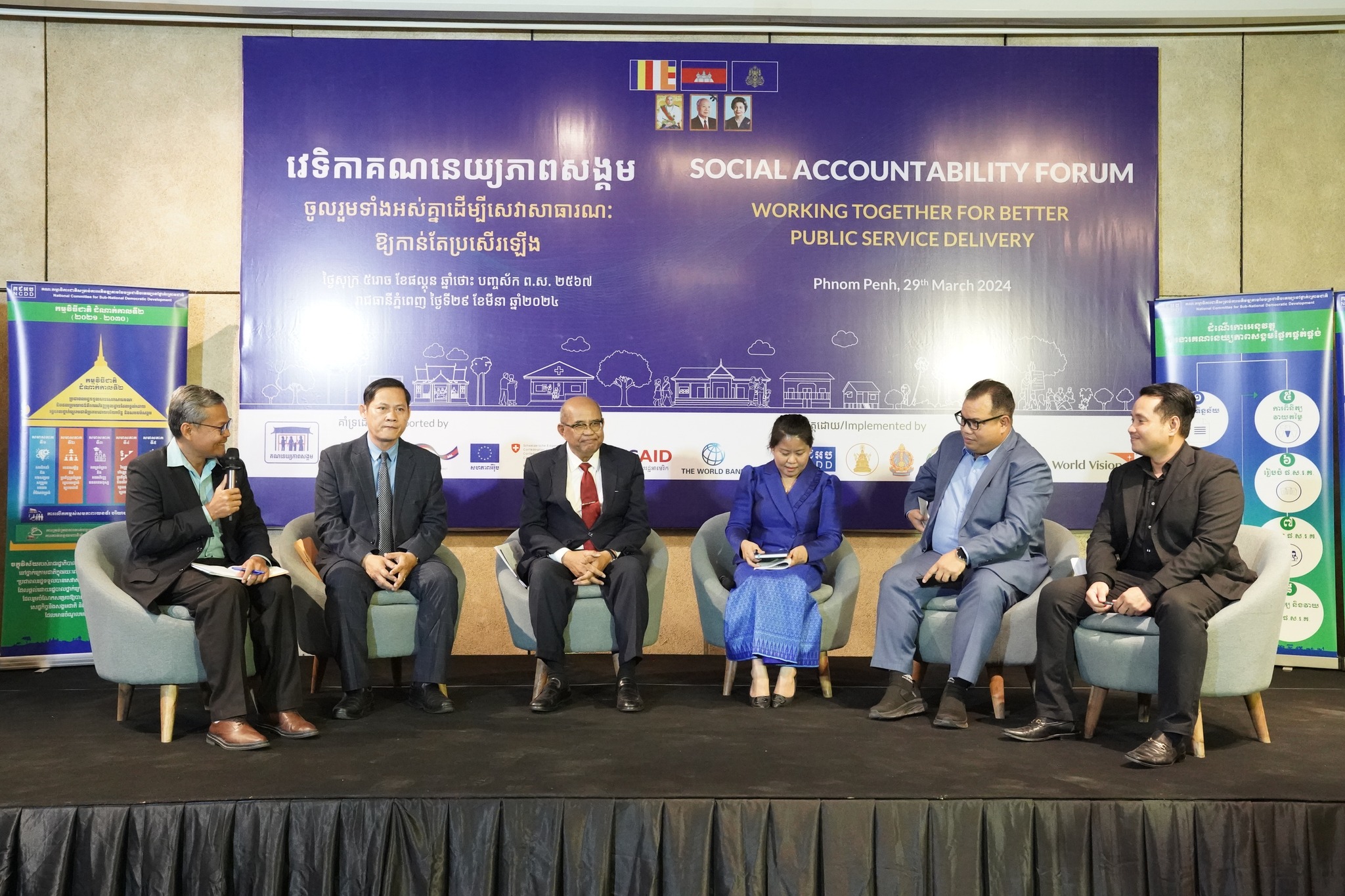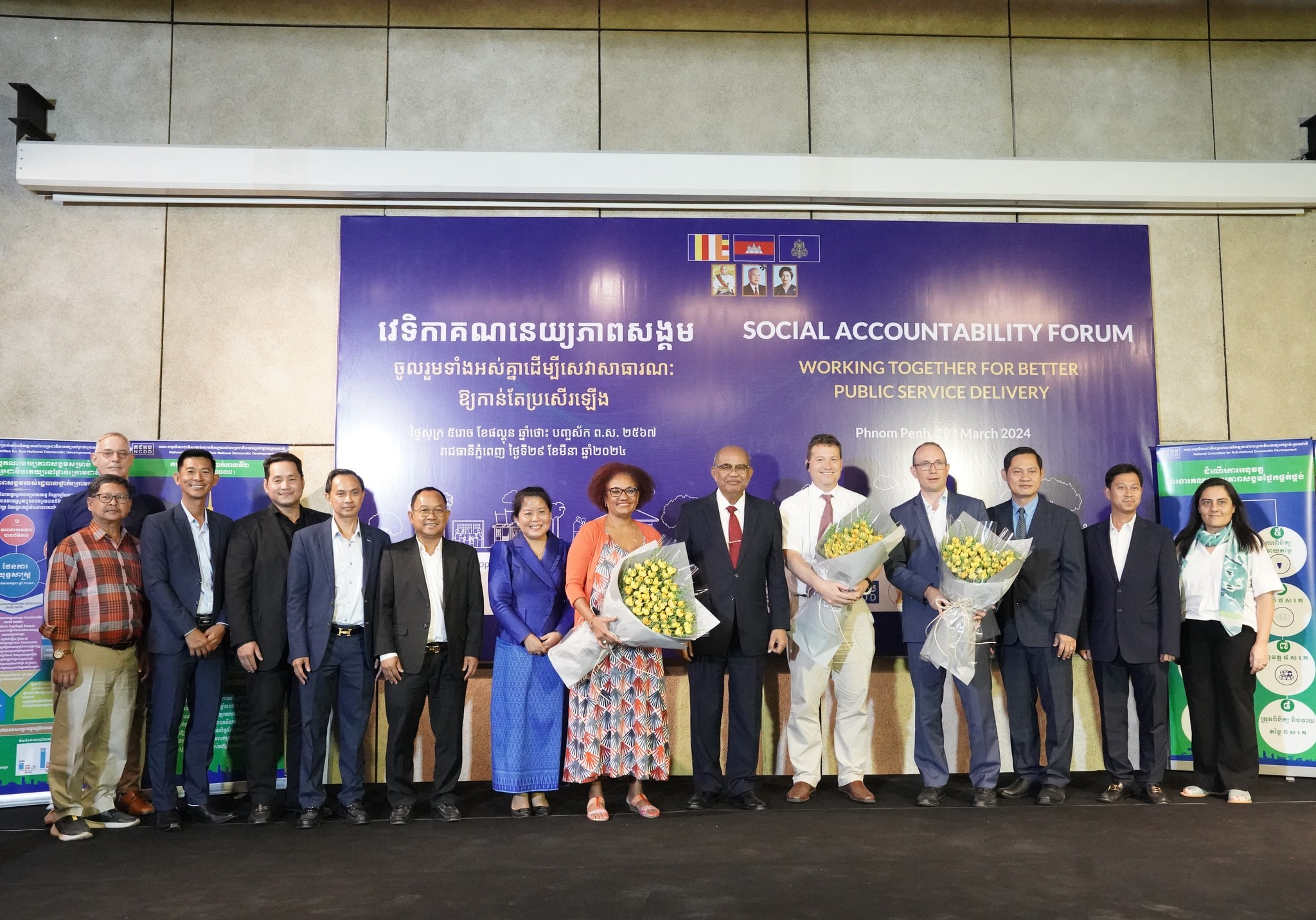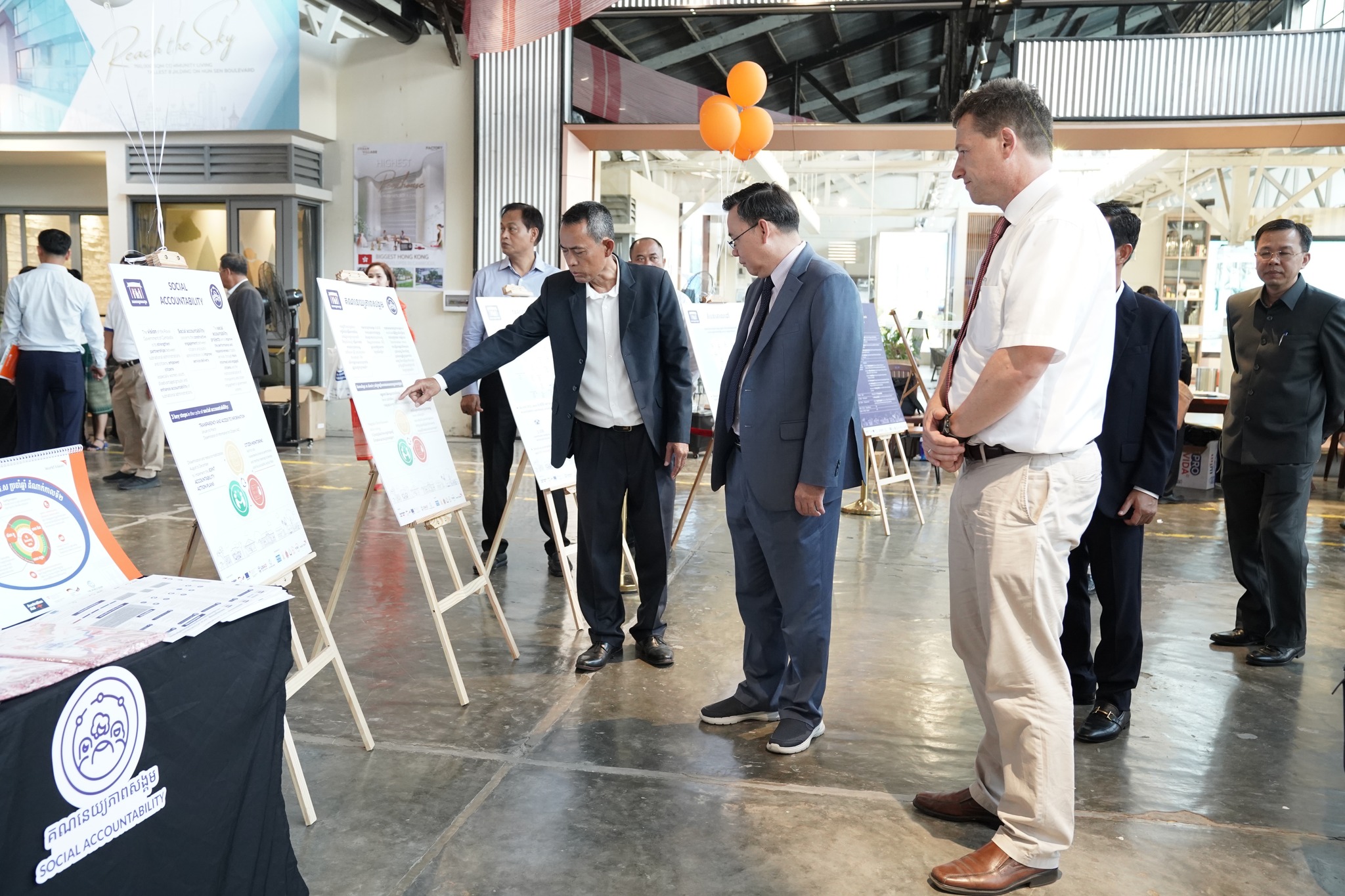Press Release
Key results of Social Accountability Forum
The Social Accountability Forum, held in the afternoon of March 29, 2024, at Factory Phnom Penh aimed to showcase the successes and achievements of the Royal Government of Cambodia in implementing social accountability. This initiative, coordinated and supported by the World Bank through a Trust Fund, alongside other development partners, contributes to the promotion of decentralization and deconcentration reform policies in Cambodia. This is achieved by strengthening public service delivery at commune and sangkat administration levels, primary schools, and health centers through the promotion of citizen participation, and by improving public service delivery to be more quality, effectiveness, transparency, accountability, inclusiveness and social equity.
The forum was attended by approximately 250 participants from relevant ministries, sub-national administrations, development partners, civil society organizations, youth groups, and media outlets. They have got the opportunity to learn more about the implementation of social accountability processes, a result of the close cooperation between the Royal Government of Cambodia and civil society organizations in promoting sub-national democratic development. The forum aimed to build public interests among policymakers and development partners to support and commit to integrating social accountability processes into existing institutional mechanisms to contribute toward good governance and local development. The forum comprised:
- An educational fair focusing on promoting social accountability.
- Presentations on the positive impacts of social accountability practices from stakeholders.
- Panel discussions on achievements, challenges, and future opportunities.
From 2016 to 2023, approximately 64,000 activities of the Joint Social Accountability Action Plan, agreed upon by citizens and service providers, aimed to improve commune administrative services. Of these, 64% of activities have been completed. By 2023, 91% of primary schools in project target areas met key national standards, up by 47% from 2020, and 68% of the population in target areas expressed satisfaction with the quality of primary school services. Additionally, by 2023, 77% of the population reported satisfactorily with the quality of services provided by health centers.
Under the strong commitment and efforts of the Royal Government of Cambodia, and with supports from the German Development Bank KfW, the Swiss Agency for Development and Cooperation (SDC), the Australian Department of Foreign Affairs and Trade (DFAT), and other development partners, more than 9,600 service providers participated in the implementation of social accountability in 2023. This includes 1,545 out of a total of 1,652 communes/sangkat (equivalent to 93%), 6,822 out of a total of 7,228 primary schools (equivalent to 94%), and 1,236 out of a total of 1,305 health centers (equivalent to 95%). Additionally, 37 out of a total of 209 municipality/district/khan administrations participated (equivalent to 18%).
His Excellency Ngy Chanphal, Secretary of State of the Ministry of Interior and Chairman of the Partnership Steering Committee (PSC) highlighted how social accountability implementation has contributed to promoting good governance and local development. This was achieved by strengthening the dissemination of information on rights and performance standards of service providers, open budgeting, which provides opportunities for citizens to participate in monitoring the performance of each service provider, and responsiveness to citizens’ requests and needs. This ensures better public service delivery with more quality, efficiency, transparency, accountability, inclusiveness and social equity. “I sincerely hope that the implementation of social accountability will be more widely disseminated to ministries, sub-national administrative institutions, development partners, civil society organizations, and the public. It is also important to strengthen and expand social accountability implementation throughout the country, which is an important mechanism of the Royal Government of Cambodia to promote good governance and local development,” he said.
His Excellency Chan Sothea, Secretary of State of the Ministry of Interior and Deputy Head of the NCDD Secretariat, indicated that “Achieving significant results and achievements of social accountability implementation is indispensable with the participation, commitment, support, and cooperation of stakeholders, especially relevant ministries, sub-national administrations, and the service providers themselves, as well as citizens, civil society organizations, and support from development partners. I am sure that this forum will help raise awareness of social accountability among stakeholders, especially the public, as social accountability is an important mechanism of the Royal Government of Cambodia to improve good governance and local development. I also hope that relevant ministries, sub-national administrations, development partners, and civil society organizations will continue and increase their support to ensure that this effort aligns with the objectives of the second phase of the Implementation Social Accountability Framework, as well as the National Program for Sub-National Democratic Development phase II of the Royal Government of Cambodia.”
Ms. Maryam Salim, Country Director of the World Bank Cambodia, emphasized the importance of social accountability, noting that “this work builds trust between citizens and sub-national administrations, and contributes to better public service delivery. We have noticed that social accountability has improved the quality of local services for the people. In fact, poor students are enrolled in accordance with the principles of basic education, and the changing attitudes of citizens to seek more health services and administrative services accordingly.”
Janes Immanuel Gintong, Country Director of World Vision, said: “We would like to thank the Royal Government of Cambodia, the relevant ministries, sub-national administrations, development partners, and the community for this effective partnership. We are demonstrating good cooperation, and World Vision looks forward to further enhancing this cooperation in the future.”


